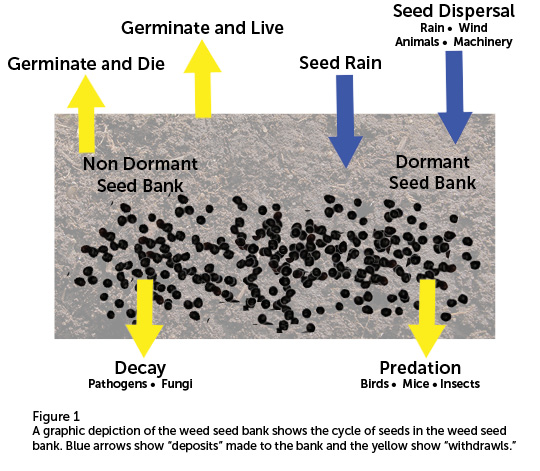Controlling Volunteer Corn In Soybeans Is Critical
Volunteer corn is much more than a nuisance weed in soybean fields. It could also be a potential threat to the effectiveness of Bt corn hybrids.
A Purdue University entomologist, Dr. Christian Krupke, says that corn hybrids containing insect-resistance genes could become more susceptible to corn rootworms unless growers keep soybean fields free of volunteer corn and continue planting refuge acres.
"What we found was that in areas where triple stack corn was planted in 2006 and soybeans in 2007, we had a great deal of volunteer corn in some of those fields," Krupke says. "Most of that volunteer corn showed up as being Roundup Ready and as having the Bt gene for rootworm."
What worries entomologists is that as producers rotate to soybeans the following year, rootworms feed on volunteer corn and are exposed to Bt toxins produced in the corn plant at less-than-toxic levels, increasing the potential for insect resistance to develop.
More Than a Yield-Robber
Volunteer corn is not an uncommon problem in a typical corn-soybean rotation. And while it’s potential to rob the soybean crop of water, nutrients, sunlight and yield potential has always been known, insect resistance concerns heightens the need for good volunteer corn control.
If you currently plant Roundup Ready corn in your fields, you will need another herbicide besides glyphosate to spray in next year’s Roundup Ready soybean fields to control volunteer corn. "In many cases, if a producer just uses glyphosate in his soybeans, he may need to go in with a second post-emergence treatment containing a graminicide," says Bill Johnson, Purdue University Extension weed scientist. "However, by then the corn has had the opportunity to grow larger and it gives more time for insects to feed, increasing resistance pressure."
Steve Hotovy, Regional Sales Representative with Gowan Company, says this new information increases the need for effective volunteer corn control. "Volunteer corn is a yield robber, especially with current commodity prices," he says. "Producers are looking for effective control."
One graminicide product that has shown consistent control of volunteer corn is Targa herbicide, from Gowan Company. It is a post-emergence grass herbicide that has demonstrated consistent control of both conventional and glyphosate-tolerant volunteer corn in soybeans, in addition to controlling perennial grasses such as Johnsongrass, quackgrass and bermudagrass. Targa can be easily tank-mixed with glyphosate for effective weed control.
"University data does show that Targa’s active ingredient, quizalofop-p-ethyl, provides consistent, effective control compared to other chemistries," says Nick Vandervort, Field Development Manager for Gowan Company. "And Purdue’s findings increase the importance of not only controlling volunteer corn effectively, but doing it as early in the season as possible."






